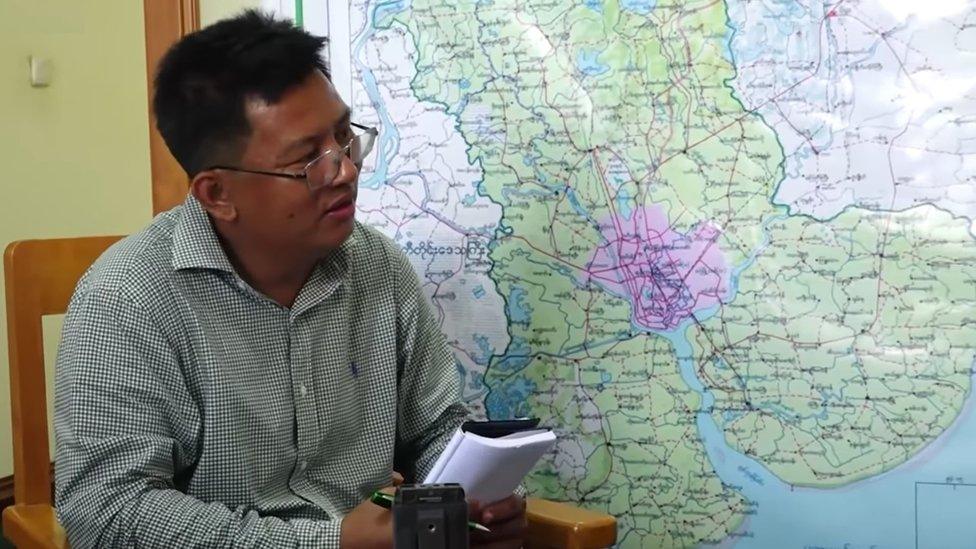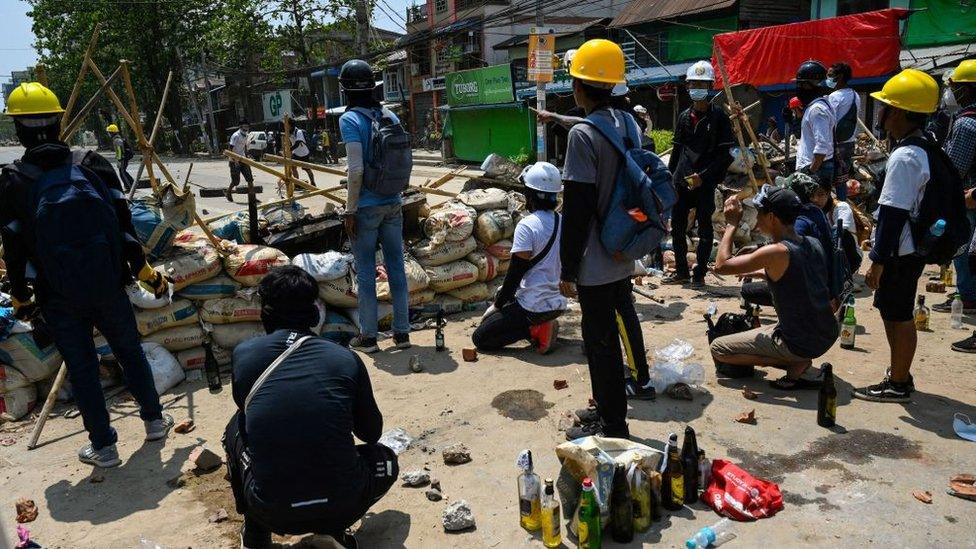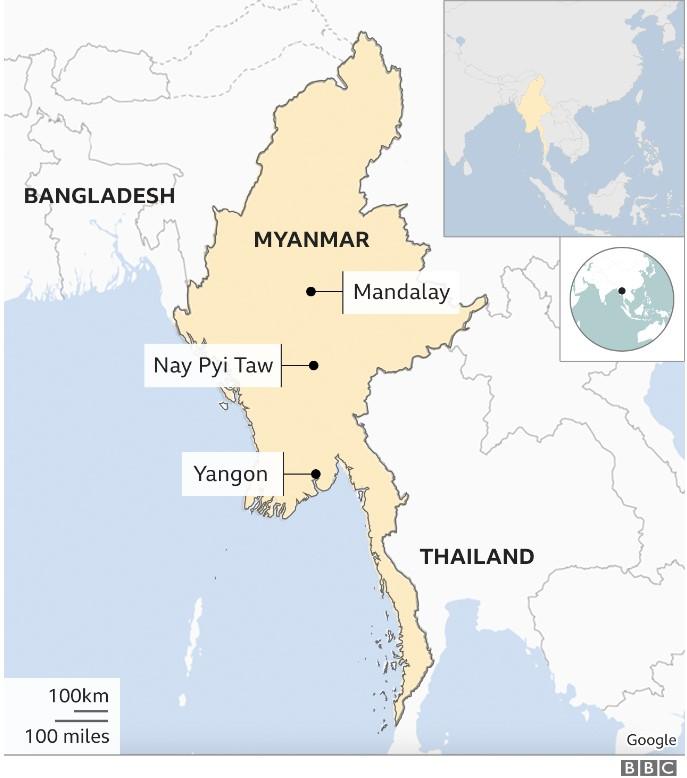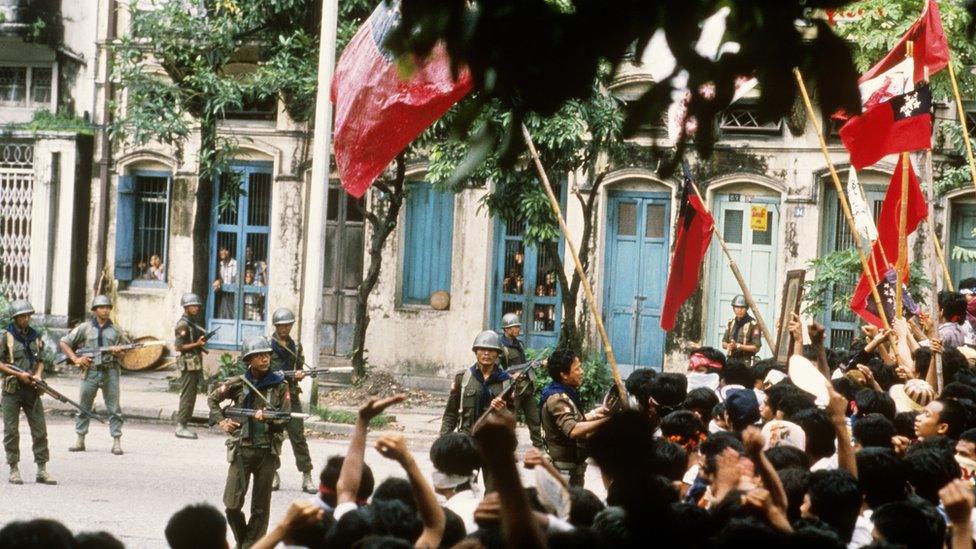Myanmar coup: Detained BBC journalist Aung Thura released
- Published

Aung Thura has been released from detention
Detained BBC journalist Aung Thur has been released in Myanmar, days after he was detained.
The BBC Burmese service reporter had been taken away by men in plain clothes on 19 March while reporting outside a court in the capital, Nay Pyi Taw.
Forty journalists have been arrested since the civilian government was overthrown in a military coup on 1 February.
The military has also revoked the licences of five media companies.
Last Friday, Aung Thura was taken away with another reporter, Than Htike Aung, who works for the local news organisation Mizzima. Mizzima's operating licence was revoked by the military government earlier this month.
The men who detained the journalists had arrived in an unmarked van at around midday local time (05:30 GMT) and demanded to see them. The BBC was unable to contact him after that.
The BBC confirmed his release on Monday, but gave no further details.
According to the UN, at least 149 people have died during the civil disobedience, though the actual figure is thought to be much higher. One of the bloodiest days was 14 March when 38 were confirmed to have been killed.

Protesters at barricades in Yangon's Thaketa township last Friday
Last weekend also saw fresh protests with several people reportedly killed.
One man was reportedly shot dead in the central town of Monywa and there were also reports of casualties in the country's second-largest city Mandalay.
Protesters across the country staged candle-lit night protests over the weekend, and in some areas were joined by Buddhist monks holding candles.
More protests were announced for Monday, especially in Myanmar's largest city Yangon.
Meanwhile, a joint statement by European Union embassies and those of the US and the UK condemned "the brutal violence against unarmed civilians by security forces".
The statement called on the military to lift martial law, release detainees, end the state of emergency and restore democracy.
Malaysian Prime Minister Muhyiddin Yassin has meanwhile criticised the use of lethal force by the military and called for "a path towards peaceful solutions".
He echoed a call by the Indonesian President, Joko Widodo, for the Association of Southeast Asian Nations to hold a summit on the situation in Myanmar.
Hunger Games salute: The symbol of protest against Asia’s military regimes

Myanmar profile
Myanmar became independent from Britain in 1948. For much of its modern history, it has been under military rule
Restrictions began loosening from 2010 onwards, leading to free elections in 2015 and the installation of a government led by veteran opposition leader Aung San Suu Kyi the following year
In 2017, Myanmar's army responded to attacks on police by Rohingya militants with a deadly crackdown, driving more than half a million Rohingya Muslims across the border into Bangladesh in what the UN later called a "textbook example of ethnic cleansing"


Related topics
- Published16 March 2021
